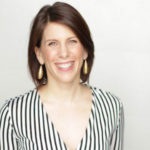Aside from politicians and professional speakers, who really loves talking to large crowds? Not many. In fact, public speaking ranks among the things that Americans fear most in the world, according to a Gallup poll which found that the only thing we are more scared of is snakes.
Michael Notaro, president of Toastmasters International, says that many business leaders who are successful in other areas still suffer from a fear of public speaking. “Even though it may be masked by other activities in their lives, many people don’t have a very strong self-image, and when they find themselves in front of an audience, they become very, very vulnerable,” he says.
Ironically, experts say that public speaking is one of the most important tools for attaining professional success. The ability to engage an audience boosts your self-esteem, makes you more visible in your professional and community networks, aids prospecting, enhances your brand and image, and moves your ideas forward, says Matt Eventoff, a public speaking coach based in Princeton, N.J. “Public speaking really allows an individual the opportunity to have his or her ideas and executive presence on full display and can open opportunities that are otherwise not available,” he says. “If you cannot communicate effectively, you will never be able to lead effectively.”
But don’t let the pressure scare you even more. Experts insist that with the proper training and practice, most people can conquer their fear of public speaking. Here are some tips to get you started:
First Person
Name: Amanda O’Brien, vice president of marketing
Company: Hall Internet Marketing, Portland, Maine
Technique: Identify each fear and create a method to combat it.
Results: Increased sales for her company and founded a monthly networking event attended by 125 social media professionals where O’Brien speaks.
I am a very shy person and have always stayed away from public speaking. In college, public speaking was a required course, but I was sneaky and got out of it. When I got into a marketing job, I realized that in order to drive sales leads, I had to start speaking in front of potential clients. When I had an opportunity to present in front of 100 people at a bankers’ union meeting at the local Holiday Inn, I was frantic. Even though I knew all the material, I actually excused myself and threw up in the bathroom.
But that one presentation resulted in my company getting a lot of leads, and I realized that in order to be effective in my industry I had to overcome this fear. I made a list of all the things I was afraid would happen and then came up with a tactic to conquer each fear. For example, I was afraid that my projector wouldn’t work, so not only do I bring my own projector, but I also make handouts as a backup. I’m so over-prepared—nothing is going to go wrong on my watch! I also worry that people won’t be able to understand me since I speak too quickly when I’m nervous, so I videotape myself practicing my speech to ensure that I’m talking at a normal rate. I focus the camera far away and try to watch it like I’m a stranger in an effort to be as objective as possible.
To control my anxiety, I try to schedule morning events, make sure I sleep well before the presentation, eat a big dinner the night before and don’t eat before my speech. I also look at a large audience as a single thing, not 125 faces.
I’m still very nervous each time I speak publicly, but now I’m confident I can do it. Of course, I still practice all the time.
First Person
Name: Danny Nguyen, founder/owner
Company: Danny Nguyen Commercial, Missouri City, Texas; real estate
Technique: Create a presentation with a message and personal anecdotes.
Results: With a thriving commercial real estate business, Danny was recently elected to the city council in Missouri City.
Learning to speak publicly did more than just teach me that one skill; it transformed my life. I immigrated to the United States from Vietnam when I was 15 and I didn’t speak any English. Now I am 45, and standing in front of a group is still terrifying. I am afraid people will not be able to understand my accent and think I’m stupid. But I had a lot of dreams and projects I wanted to accomplish, so I became determined to get over my fear. If I want to build a multimillion-dollar shopping center, I have to sit in front of committees and boards and make presentations. The bigger the project, the more people I have to convince. If you want to do big things, public speaking is not an option—it is a must.
A lot of my fears come down to the fact that English is my second language, so I’m afraid I’ll do things like make a poor word choice. This scares me into being prepared and practicing. I usually practice by myself in the bathroom mirror or go outside and imagine the trees are
the audience.
One thing that makes it easier for me is to focus on my message and make sure that message benefits the audience. The more I believe in my message, the more passionate and focused I am in my delivery. I try to illustrate my points with real-life experiences that connect with the audience.
I first started to gain confidence in my public speaking by identifying a few people in the audience who gave me nonverbal approval during my presentation—smiles or nods of the head. If I stumble or get lost, I refocus by remembering what I practiced and by looking to the audience for positive feedback.
Today I attribute 80 percent of my success to my public speaking skills.
First Person
Name: Dave Hatter, founder/owner
Company: Libertas Technologies, Cincinnati; software, web and mobile development
Technique: Realize fears are illogical. Just do it.
Results: Built a successful business and is frequently invited to speak.
I used to be deathly afraid of public speaking and in general very shy. Once in college I sat through an entire class without taking notes because I’d forgotten a pencil and was too timid to ask to borrow one. Also in college I had to take a public speaking class, and I would get every symptom of anxiety you can think of: sick to my stomach, sweating like a dog, voice cracking. I was terrified I would look stupid. But eventually I realized that I didn’t look any more foolish than anyone else, and I can say that class was the most significant step I took in getting over my fear.
But I still avoided public speaking. When I started my career, I worked at a large corporation and realize now I could have advanced more quickly if I’d been willing to make presentations.
My biggest fear has been that someone in the audience will know more about the topic than I do and ridicule me. To psych myself up, I now tell myself that in the hundreds of presentations I’ve made and classes I’ve taught, this has never happened. In general people really don’t have it in for you. I also remember not to take on subjects I’m not qualified to speak about and to genuinely provide useful information for the audience.
When I started my business, I realized that making presentations is a way to get ahead and be recognized as a thought leader. Speaking at conferences and chamber of commerce meetings is a great way to get in front of hundreds or thousands of prospective customers I would otherwise not be exposed to. Today I can say I enjoy public speaking and have presented at dozens of seminars and for crowds as large as 300 people. Plus I frequently appear on TV and radio, which is worth countless dollars in free advertising.
Public speaking has had more indirect professional and personal benefits as well. I feel more comfortable speaking with people one on one, and I’m more confident going on sales calls and having a conversation to close a deal.
Plan. When writing your speech, incorporate concepts that will connect you with the audience. Ask yourself:
• Who is the audience?
• What does the audience get from this presentation?
• If I were in the audience, would I care?
• Why would I care?
• Is there a clear call to action?
Prepare. There is no substitute for rote practicing, Eventoff says. “The panicked ‘oh-no’ moment hits during a speech when the person realizes they are practicing while they are presenting,” Eventoff says. To avoid that sudden blank spot, “Remember: Michael Jordan didn’t take the court for the first time on game day.”
To practice, present your speech in front of others. “Choose people who will give you honest feedback,” Eventoff says. Whether it’s your spouse, colleague or a speaking coach, ask them to consider the above questions.
You can also videotape yourself. Speakers are often very good at identifying important changes they need to make to their speech, Eventoff says.
To keep your skills sharp and your anxiety down, practice and seek training even when you’re not prepping for an event. “Developing your communication skills is like the development of a physical muscle you have to work out day after day, month after month,” Notaro says.
Include visuals—with caution. PowerPoint presentations are an excellent tool to enhance a point, but they can be a crutch, Eventoff says. “People often use a very crowded PowerPoint deck to alleviate their anxiety about public speaking because they feel the graphics become center stage,” he says. “What great leader ever used PowerPoint slides? A powerful graphic works to accentuate a powerful delivery. Otherwise you should just print out the graphic, email it to everyone and skip the meeting.”
Have a game plan for your worries. Identify specifically what makes you break into a cold sweat and then find a solution. “Everybody’s fear is a little different,” Notaro says. “If you let your thoughts get away from you it can destroy your effectiveness.”










